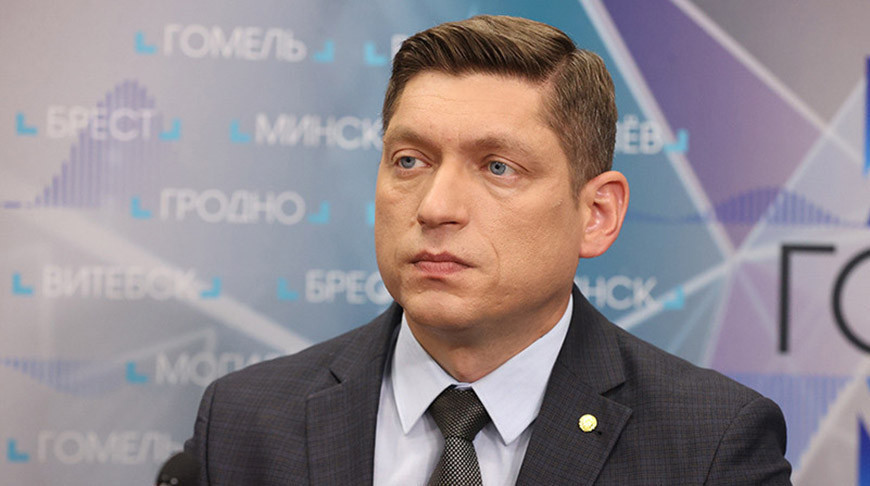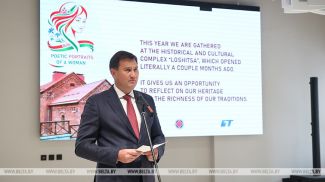
MINSK, 6 February (BelTA) – At a time of pressure from the West in the form of economic, financial and logistical sanctions, it is important for the economies of Belarus and Russia to implement projects and ramp up investments, eliminating any bureaucratic delays, Aleksei Avdonin, an analyst with the Belarusian Institute of Strategic Research (BISR), said in an interview with BelTA.
"The interaction between the regions of Belarus and Russia enable us to pinpoint local needs and address them very quickly by supplying necessary goods and services, to assess the possibility of implementing joint investment projects, thereby saving time. In the current situation, only those who do not waste time will get a good result," Aleksei Avdonin said.
He noted that the regions of Belarus and Russia are working together in various fields, and regional cooperation contributes to the integration programs of the Union State, shores up the economic potential and the growth of the well-being of citizens of both countries. "Regional cooperation has a beneficial effect on the economy, allowing for quick decision-making. The result is an inflow of new orders for our enterprises, which enables them to save jobs and also to increase wages and expand production," the analyst said.
Joint programs in industrial cooperation and import substitution carried out by the regions of Belarus and Russia within the framework of the unified industrial policy of the Union State makes a significant contribution to ensuring its economic and technological sovereignty.
"Any investment activity is associated with the involvement of engineers, scientists, and technologists. They develop and implement new methods of production of goods and services, which gives impetus to the intensive development of science and technology. This, in turn, makes it possible to increase our technological sovereignty and to counter any pressure from the West in the form of restrictions on the supply of high-tech equipment to Belarus and Russia.
The main areas of high-tech production remain the same: microelectronics, electronics, space, military-industrial complex, petrochemicals, telecommunications, advanced automotive vehicles such as freight transport, buses, special-purpose vehicles, farm machines. This gives us the opportunity to replace imports and avoid any shortages," Aleksei Avdonin noted.
"The interaction between the regions of Belarus and Russia enable us to pinpoint local needs and address them very quickly by supplying necessary goods and services, to assess the possibility of implementing joint investment projects, thereby saving time. In the current situation, only those who do not waste time will get a good result," Aleksei Avdonin said.
He noted that the regions of Belarus and Russia are working together in various fields, and regional cooperation contributes to the integration programs of the Union State, shores up the economic potential and the growth of the well-being of citizens of both countries. "Regional cooperation has a beneficial effect on the economy, allowing for quick decision-making. The result is an inflow of new orders for our enterprises, which enables them to save jobs and also to increase wages and expand production," the analyst said.
Joint programs in industrial cooperation and import substitution carried out by the regions of Belarus and Russia within the framework of the unified industrial policy of the Union State makes a significant contribution to ensuring its economic and technological sovereignty.
"Any investment activity is associated with the involvement of engineers, scientists, and technologists. They develop and implement new methods of production of goods and services, which gives impetus to the intensive development of science and technology. This, in turn, makes it possible to increase our technological sovereignty and to counter any pressure from the West in the form of restrictions on the supply of high-tech equipment to Belarus and Russia.
The main areas of high-tech production remain the same: microelectronics, electronics, space, military-industrial complex, petrochemicals, telecommunications, advanced automotive vehicles such as freight transport, buses, special-purpose vehicles, farm machines. This gives us the opportunity to replace imports and avoid any shortages," Aleksei Avdonin noted.













